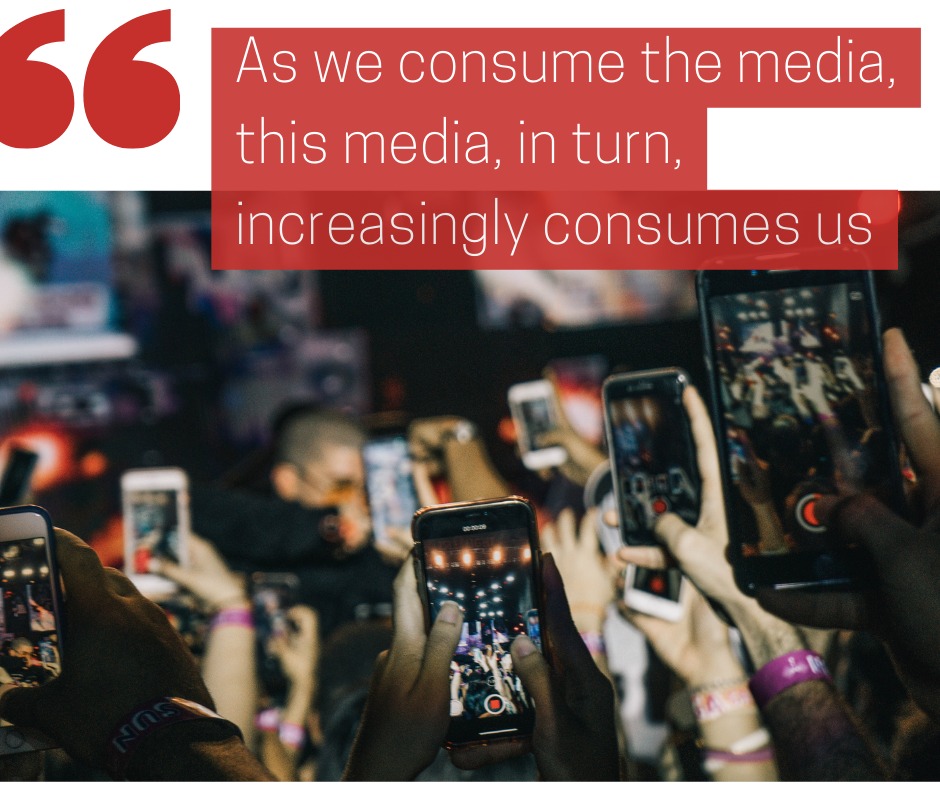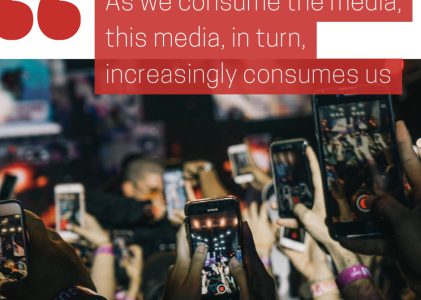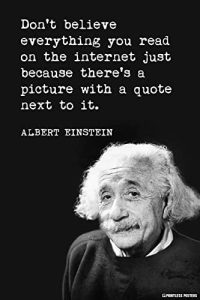
Dear readers,
humans are social animals. If you’ve ever read/studied anything psychology/sociology related, you will no doubt have come across this phrase before. It follows, then, that we as a species have developed a bunch of mechanisms that allow us to interact with another socially to learn from another, develop and grow, and avoid things that would negatively impact us. And for a couple of thousand years, those predispositions and biases have served us quite well in allowing us to live longer, become more numerous, and increase our standard of life. Let’s group some of these social predispositions under the term cognitive biases. While there are a number of these at work in our brains at any given point in time, here are a number that may be more prevalent when it comes to how we interact with new(s) media:
- Confirmation bias – we like hearing opinions that reaffirm our own. This strengthens in-group feelings. We all like to belong, and will often unconsciously adjust our beliefs so we feel like we’re part of the cool crowd.
- Affinity bias/in-group bias- we prefer those who are similar to us. This is not as prevalent, since it’s mostly on an individual level, but can be at work when it comes to ‘strong personalities’ in news.
- Dunning-Kruger Effect – this is a big one. Basically, this means “I have a limited understanding of something, therefore it is simple”, usually followed by sweeping suggestions/directives of how to solve this thing that is oh-so-simple
- Selection bias – we start seeing something a lot more once we are sensitized to it. I recently bought a red car. Now I see red cars everywhere.
- Fundamental attribution bias – we make causal assumptions when information is lacking. ie. “my colleague is always late to our meetings because he is a lazy person” or “Hillary Clinton would be a bad president because she is an evil lizard person”.
- Mere exposure effect – repeated exposure to certain stimuli makes us accept and like them. Advertising works with this principle heaps.
There’s just so much out there
A study that tried to quantify all the different news outlets and those sites that claim to be news… has never successfully been carried through and would likely be outdated by the time it was published. My point is, you can get your news from virtually anywhere these days. Now you might be thinking: “But Simon, how does the reliability of media come into this? Doesn’t the internet have a way of regulating the truthfulness of published content by vetting it through its gigantic user base? The cream rises to the top, does it not?!”
No. The cream is often rancid.
The opposite is true, actually. While the diversity of sources is in itself not a bad thing, it can (and does) very quickly have a detrimental effect on the quality of news overall. Working with more easily quantified samples, a study carried out by the Shanghai Institute of Technology and the University of Indiana found that the sheer mass of media that is available to us cheapens the quality of everything that there is out there because (thanks to our biases) we start filtering out information that is nuanced or offers new perspectives, instead favouring those posts that are readily (and in masse) dished up to us.
Viewing and producing blogs, videos, tweets, and other units of information called memes have become so cheap and easy that the information marketplace is inundated. Unable to process all this material, we let our cognitive biases decide what we should pay attention to. These mental shortcuts influence which information we search for, comprehend, remember and repeat to a harmful extent. (Scientific American)
We all have other things to do, after all, then become an expert on any given topic out there. At the same time, we want to feel informed, like being able to have an opinion on things. So we choose the middle path – we read/watch/listen up on whatever is in the headlines to the extent that our everyday lives allow us and, for the most part, don’t really bother to make a background check on half the bite-sized news we consume. Ain’t nobody got time for that.
What ends up happening is that as much as we consume the media, this media in turn increasingly consumes us (in the sense of occupying an increasingly large space in our lives). As Herbert A. Simon (economist & Psychologist) noted, “what information consumes is rather obvious: it consumes the attention of its recipients.” And bigger is better. When it comes to revenue, having millions of clicks on a lousy post is just so much sweeter than a hundred clicks on a well-researched and formulated article. Better yet, people’s attention spans are short; we’ll happily consume 15 seconds snippets on TikTok for an hour but will x-away the in-depth article it would have taken half an hour to read. If you’re not up for tons more reading, I’d highly recommend the documentary “The Social Dilemma” to take a deep dive into that topic. So on one hand, we the users are prone to consume those things that come easy to us and vibe with our biases. Media platforms are business – not altruistically – driven. More clicks > reliable information. More clicks > ethical representation. More clicks > pretty much anything.
So what to do? No news is *not* good news (I think)
Perhaps you’ve heard this before: “I’m just so fed up with all the fake news, I don’t read any news at all.” Problem solved, right?
No, not really.
But let’s leave that for another post 😉
Let’s get meta here real quick:
So as you are shoveling this (hopefully) useful information into your head, is there a little voice in the back of your head questioning everything you’re reading on the account of what you are reading? If yes, good!
After all, biases are at work here, too. With an intentionally ‘relatable’ tone, a clustering of our blog’s various social media channels, and perhaps even touching on a distrust for social media that you harbour yourself already, any given number of biases are at work in virtually anything we perceive. Awareness of these biases and how they work in the arena of new media is the first step in not being directed by them. So by all means, question what you read here, follow the sources and interact with us in the comment section to see if we’re not bots.
Thank you very much for reading to the end and I look forward to lively discussions directly on the post’s “Comments” section as well as on Facebook and Twitter. What do you think about the phrase “If it ain’t broke, don’t fix it”? Is this holding us back or are we still doing enough to challenge the status quo? Did you feel like you’ve learnt enough about quantifying news outlets? And what is something you feel was missing in the analysis? I’m eager to know and to broaden my horizons. Thank you in advance for the engagement!
“Read” you next time!


